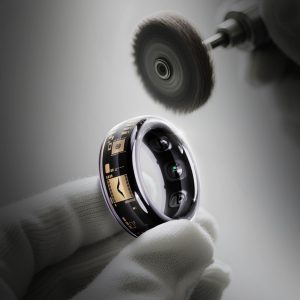In today's rapidly evolving digital landscape, Smartwatch For Health has become an indispensable topic that no professional or health-conscious individual can afford to ignore. Whether you're a beginner looking to dip your toes into health tech or an experienced practitioner seeking to optimize your well-being, understanding the nuances of Smartwatch For Health will provide you with invaluable insights and actionable strategies. This comprehensive guide will explore all aspects of Smartwatch For Health, offering you practical knowledge and proven approaches to achieve success in your health journey.
Why Smartwatch For Health Matters in 2025
The market for Smartwatch For Health is experiencing explosive growth, making it a critical area of focus for 2025. This surge is driven by increasing health awareness, technological advancements, and the convenience these devices offer in tracking various health metrics. From heart rate monitoring to sleep analysis and activity tracking, smartwatches are empowering individuals to take a proactive approach to their health. Future predictions indicate a continued upward trajectory, with more sophisticated sensors, AI-driven insights, and seamless integration with healthcare systems becoming standard. Investing in a Smartwatch For Health now means staying ahead of the curve and embracing a future where personal health management is more accessible and data-driven than ever before.
Top Smartwatch For Health Options: A Detailed Comparison
Choosing the right Smartwatch For Health can be daunting with the plethora of options available. Leading contenders in the market offer a range of features tailored to different needs. For instance, some excel in ECG monitoring and blood oxygen tracking, while others prioritize advanced fitness tracking and GPS accuracy for outdoor activities. When comparing devices, consider factors like battery life, water resistance, screen quality, and the ecosystem they integrate with (e.g., Apple Health, Google Fit). Each brand has its unique strengths and weaknesses; for example, some might offer superior app integration but come at a higher price point, while others provide excellent value with a more focused feature set.
How to Choose the Right Smartwatch For Health for You
Selecting the ideal Smartwatch For Health involves a careful evaluation process based on your individual needs and lifestyle. Begin by identifying your primary health goals: Are you focused on weight loss, stress management, sleep improvement, or athletic performance? Next, consider your budget, as prices can vary significantly depending on features and brand. Evaluate the device's compatibility with your existing smartphone and other health applications. Don't overlook crucial factors like comfort, design, and user-friendliness. Reading expert reviews and user testimonials can also provide valuable insights, helping you make an informed decision that aligns with your personal health objectives.
خاتمة
Through this comprehensive exploration, we have gained valuable insights into all aspects of Smartwatch For Health. Mastering this knowledge will help you achieve better results in your related endeavors, whether you're aiming for improved fitness, better sleep, or overall well-being. The advancements in smartwatch technology are continuously redefining personal health management, offering unparalleled opportunities for self-monitoring and proactive care. Start implementing these strategies today, and you can be confident in achieving your desired health outcomes.
التعليمات
Q1: How accurate are smartwatch health metrics?
A1: While smartwatches provide valuable insights, their accuracy can vary. For medical-grade precision, professional medical devices are recommended. However, for general health tracking and trend identification, smartwatches are highly effective.
Q2: Can a smartwatch detect serious health conditions?
A2: Some smartwatches are equipped with features like ECG and fall detection, which can alert users to potential health issues. However, they are not a substitute for professional medical diagnosis or treatment. Always consult a healthcare provider for any health concerns.
Q3: Is it safe to wear a smartwatch while sleeping?
A3: Yes, wearing a smartwatch to bed is generally safe and allows for comprehensive sleep tracking, including sleep stages and duration. Most modern smartwatches are designed to be comfortable for extended wear.
Q4: What's the typical battery life of a Smartwatch For Health?
A4: Battery life varies widely depending on the model and usage. Some smartwatches last a day or two with extensive features, while others can last over a week with more basic functionalities.
Recommended For:
-
Fitness Enthusiasts: Those who want to meticulously track their workouts, heart rate zones, and progress.
-
Health-Conscious Individuals: People looking to monitor daily activity, sleep patterns, and stress levels for overall well-being.
-
Individuals with Chronic Conditions: With doctor's approval, smartwatches can assist in monitoring certain health parameters (e.g., heart rate, blood oxygen) more frequently.
-
Tech-Savvy Users: Anyone interested in leveraging the latest technology to enhance their personal health management.
-
Busy Professionals: Individuals seeking convenient and discreet ways to stay on top of their health without constant manual logging.








